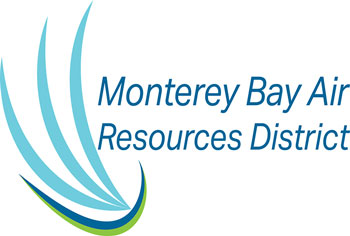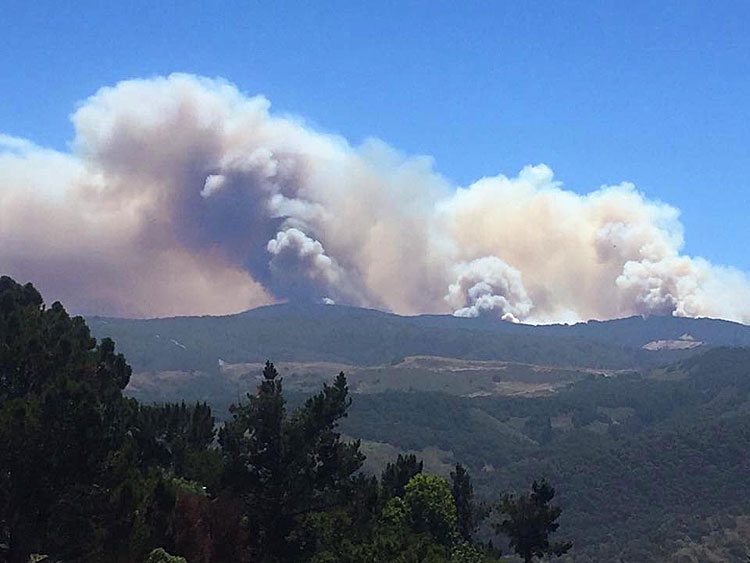Editor’s Note: This announcement comes from
Richard A. Stedman, air pollution control officer with Monterey Bay Air Resources District
Smoke from the River, Warnella, and CZU August Lightening Complex wildfires currently burning in our region has degraded air quality throughout Monterey, San Benito, and Santa Cruz counties.
 The concentration of smoke has reached levels of the Air Quality Index (AQI) that are MODERATE (yellow) or UNHEALTHY FOR SENSITVE GROUPS (orange) in some areas of the region. Air quality will be variable and unpredictable as conditions change depending on wind and fire activity.
The concentration of smoke has reached levels of the Air Quality Index (AQI) that are MODERATE (yellow) or UNHEALTHY FOR SENSITVE GROUPS (orange) in some areas of the region. Air quality will be variable and unpredictable as conditions change depending on wind and fire activity.
The Air District will continue to follow the situation and issue advisories when appropriate.
The Monterey Bay Air Resources District (MBARD) monitors air quality in our region. Updates on the current and forecasted air quality and information about the health effects of wildfire smoke can be found on the MBARD website at: https://www.mbard.org/wildfire-smoke-information-and-resources.
If you are being impacted by smoke, consider these guidelines:
- When the concentration of smoke has reached orange, red, purple, or maroon levels of the AQI, residents should limit their activity by staying indoors with the doors and windows closed to avoid breathing smoke. You may want to check with your health care provider to make sure it’s not necessary for you to leave the area to where wildfire smoke is diminished or not present.
- Use common sense. If it looks smoky outside, it’s not a good time to exercise or work outside and it’s not a good time for your children to play outdoors.
- Help lower inside particle levels inside your home. When smoke levels are high, avoid using anything that burns, such as wood fireplaces, gas logs, gas stoves – even candles. Don’t vacuum as that stirs up particles already inside your home. And don’t smoke. That puts even more pollution in your lungs, and in the lungs of people around you.
- We are asking residents to avoid adding more pollution to the air by limiting activities such as wood burning, driving, lawn mowing, and leaf blowing. Also, drive your car only if absolutely necessary and combine trips, when possible, to reduce pollution.
Health Effects of Smoke
Smoke is made up of a complex mixture of gases and fine particles produced when wood and other organic matter burn.
The biggest health threat from smoke comes from fine particles. These fine particles are especially harmful to the very young, very old, and to people with heart and lung disease.



